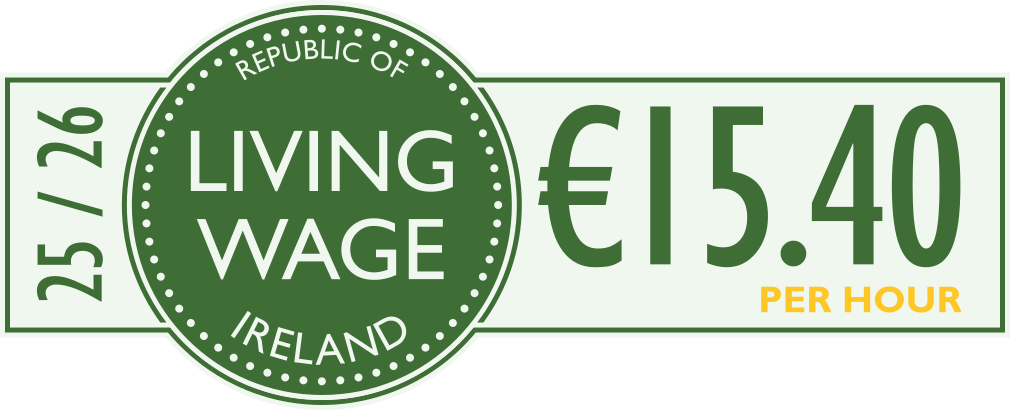Living Wage 2025/26
What is a Living Wage
It is a wage which makes possible a minimum acceptable standard of living. It is evidence based and grounded in social consensus.
It is:
- based on the concept that work should provide an adequate income to enable individuals to afford a socially acceptable standard of living
- the average gross salary which will enable full time employed adults (without dependents) across Ireland to afford a socially acceptable standard of living
- a living wage which provides for needs not wants
- an evidence based rate of pay which is grounded in social consensus and is derived from Consensual Budget Standards research which establishes the cost of a Minimum Essential Standard of Living in Ireland today
- unlike the National Minimum Wage which is not based on the cost of living.
In principle, a living wage is intended to establish an hourly wage rate that should provide employees with sufficient income to achieve an agreed acceptable minimum standard of living. In that sense it is an income floor; representing a figure which allows employees afford the essentials of life. Earnings below the living wage suggest employees are forced to do without certain essentials so they can make ends-meet.
On a Living Wage you can afford
- Clothing
- Food
- Housing
- Health
- Education
- Transportation
The idea of a living wage was “initially dismissed as impossible” but developed to become recognised “as a compelling cause which offers benefits to workers, employers and to wider society”.
Hirsch and Moore, 2011
Everyone has the right to a standard of living adequate for the health and well-being of himself and of his family, including food, clothing, housing and medical care and necessary social services, and the right to security in the event of unemployment, sickness, disability, widowhood, old age or other lack of livelihood in circumstances beyond his control.
UN Declaration of Universal Human Rights, 1948 Article 25
Everyone has the right to an adequate standard of living for himself and his family, including adequate food, clothing and housing and to continuous improvement of living conditions.
UN International Covenant on Economic and Cultural Rights 1996 Article 11
